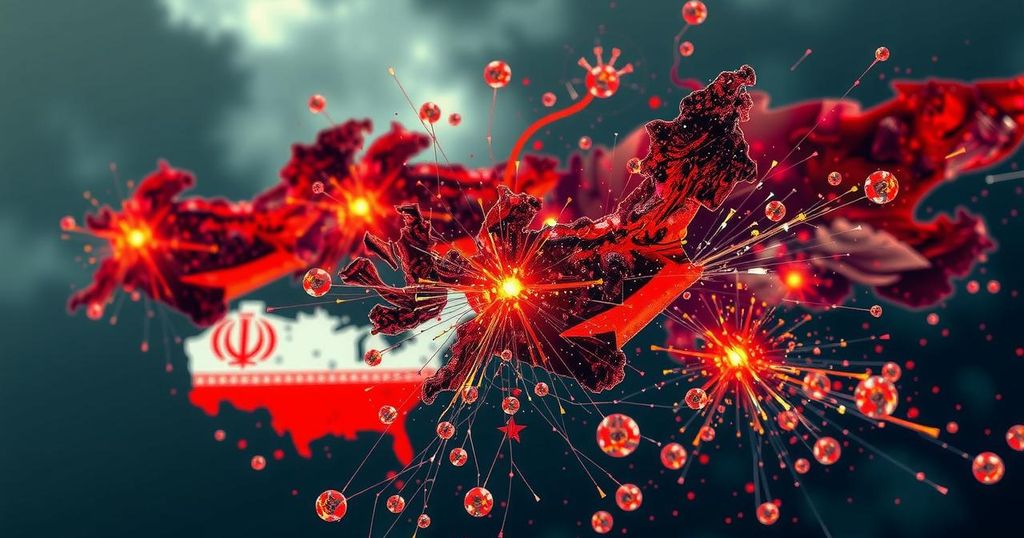U.S. officials are increasingly wary of a collaboration among China, Russia, North Korea, and Iran, labeled as a new ‘axis of evil.’ Key developments include the presence of North Korean troops in Russia and ongoing military support for Russia’s war in Ukraine from the other three nations. Experts highlight this alliance’s potential to destabilize international order and its expansionist aspirations.
U.S. officials express increasing concern over a growing alliance among China, Russia, North Korea, and Iran, which they are referring to as a new ‘axis of evil.’ During a recent trip to Rome, U.S. Defense Secretary Lloyd Austin confirmed that North Korean troops are stationed in Russia, likely preparing for involvement in the ongoing conflict in Ukraine. Reports indicate that these countries have been supporting Russia’s military efforts in various capacities, with Iran supplying missiles and drones, North Korea providing artillery shells, and China contributing dual-use technologies and industrial products including semiconductors and drone engines. During discussions, Congressman Rob Wittman drew parallels between the current geopolitical landscape and the historical context of the late 1930s, emphasizing the necessity for nations that uphold the rule of law to unite against these revisionist forces. He articulated that this collective poses a greater threat to global stability than Nazi Germany did, owing to their collaborative technological advancements and military capabilities. Alongside Wittman, Secretary of State Antony Blinken labeled these nations as revisionist powers. He articulated that while they are not firmly aligned as an axis, their decisions and actions necessitate decisive countermeasures from the United States. Experts suggest that this coalition is striving to cultivate a self-sufficient economic zone independent of Western influence, elevating the risk of destabilization. Merrill Matthews remarked that the ambitions of these nations signal an urgent warning, whereas Christopher S. Chivvis highlighted China’s pivotal role in this partnership, amplifying worries for U.S. security interests globally. Chivvis further elaborated on potential scenarios where coordinated crises across different regions could emerge, exacerbating tensions and conflicts. Michael Singh cautioned against the notion that conflicts would remain localized, emphasizing the interconnected nature of global security dynamics. In conclusion, the growing partnership of China, Russia, North Korea, and Iran poses significant challenges for the United States and its allies, compelling the necessity for heightened vigilance and strategic responses to counteract potential threats to international stability.
This article addresses the evolving dynamics of geopolitical partnerships among certain nations perceived as threats to global stability. In particular, the collaboration among China, Russia, North Korea, and Iran has raised alarms within U.S. defense and political circles, leading to the reapplication of the term ‘axis of evil’ in reference to these states. The concerns stem from these countries’ military and technological cooperation, especially in relation to Russia’s ongoing conflict in Ukraine. The article also highlights discussions among U.S. officials who draw historical parallels to pre-World War II alliances, underscoring the need for strategic responses from nations promoting democratic values.
The emerging partnership among China, Russia, North Korea, and Iran represents a formidable challenge to U.S. and allied interests, necessitating a strong and unified response to deter potential threats to global stability. As these nations work to align their goals and expand their influence, the international community must remain vigilant to counteract the ramifications of their collaborative actions, which could reshape the current geopolitical landscape.
Original Source: www.voanews.com






